
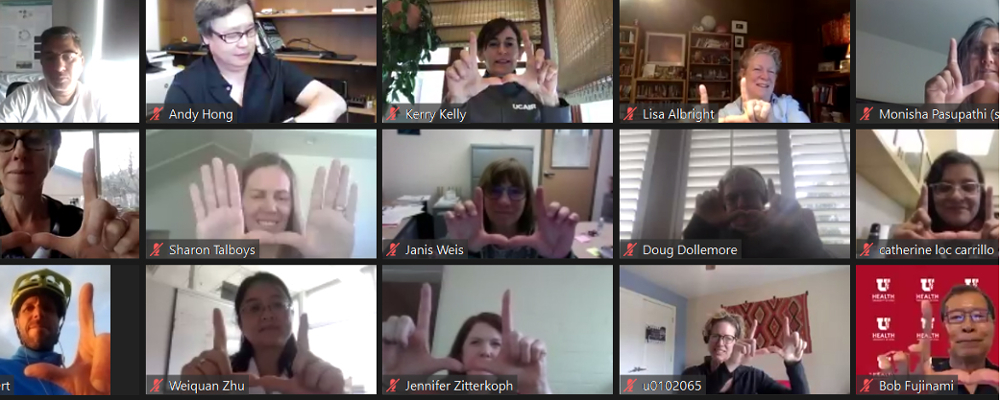
3i Initiative Unites University Researchers in Times of Need
Jun 15, 2020 8:00 AM
Author: Doug Dollemore
If COVID-19 has taught us anything, it’s this: death and taxes aren’t the only certainties in life. We’re all going to get sick at some point. And chances are those illnesses will involve an infectious disease that causes inflammation and compromises our immune systems.
"Immunology, inflammation, and infectious disease are involved in every type of human medical condition that you’ll find, ranging from COVID-19 to cardiovascular disease to neuroinflammation."
-Ryan O’Connell
The flash flood-like emergence of COVID-19 has shined a spotlight on those three “I” words and the efforts of University of Utah Health’s Immunology, Inflammation, and Infectious Disease (3i) initiative. 3i is a university-wide effort that brings scientists from diverse backgrounds together to conduct top-tier research in these fields. Since its establishment in 2017, nearly 200 faculty members representing 33 departments across campus have collaborated to make fundamental discoveries that could ultimately improve patient care.
With 3i in place, the university was quickly able to mount a host of multidisciplinary research projects designed to help scientists better understand and respond to the pandemic, which has caused more than 400,000 deaths worldwide, including more than 115,000 in the United States and nearly 150 in Utah.
“We quickly realized that we had quite a lot of people, both at the main campus and at the health sciences campus, who were working on COVID research,” says Daniel Leung, MD, associate professor in the Division of Infectious Disease and co-director of 3i. “The broad scope of 3i and the strong community we had created among those researchers put us in a good position to get everybody together so they could take advantage of this opportunity to collaborate.”
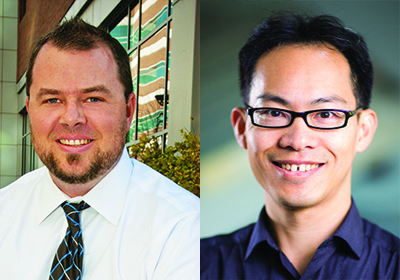
While COVID-19 has certainly focused attention on 3i, the initiative isn’t one dimensional. In fact, it unifies and enhances U of U’s historic strengths in each of the “I” fields, including basic, translational, and clinical research efforts. By facilitating strategic interdisciplinary collaborations and supporting pilot projects, the Initiative gives Utah scientists a competitive advantage for making novel discoveries and securing prominent national funding.
Including the COVID-19 response, 3i has awarded $950,000 in seed grant funding over the past three years, with some projects already leading to larger grants from national agencies. By fueling research in six priority areas—Microbiota and Mucosal Immunity, Bacterial Infection and Drug Resistance, Neuroinflammation, T-cells and Vaccines, Global Health, and Tumor Immunity—3i investigators are poised to improve diagnosis and treatment for the diverse array of human disorders involving infection, atypical immune responses, and other triggers of inflammation.
“Immunology, inflammation, and infectious disease are involved in every type of human medical condition that you’ll find, ranging from COVID-19 to cardiovascular disease to neuroinflammation,” says Ryan O’Connell, PhD, co-director of 3i with Leung. “The three "I"s play pivotal roles when it comes to human health. Understanding how they interact—as opposed to studying them in isolation —is key to formulating new and innovative approaches to treating disease and other human disorders.
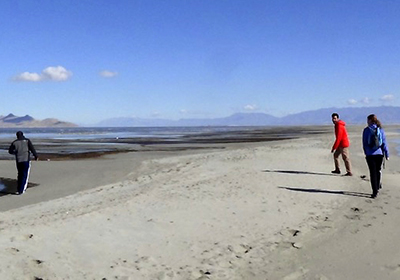
The Art of Scientific Matchmaking
Out amid the muck and mire along the shores of the Great Salt Lake, Jaclyn Winter, PhD, is in her element. Winter, an assistant professor of medicinal chemistry in the College of Pharmacy, is extracting unique forms of microorganisms only found in or around the lake. After isolating new strains, she cultures them in her lab, hoping to find the next generation of antimicrobial drugs. But she can take this research only so far on her own.
“What we have is an environmental sample,” Winter says. “When you start talking about more practical health applications, that’s where we need collaborators who can use our sample molecules to test in cell cultures and animal models. We don’t have that capability in our lab.”
Yet finding others on campus who are interested in or are doing similar research can be problematic.
“It’s hard to keep track of what every lab is working on,” Winter says. “Who has time to look at everyone’s websites? It’s like stumbling around in the dark, doing your own little piece of research without realizing that somebody over in biochemistry or pathology has other pieces that would complement what you’re doing.”
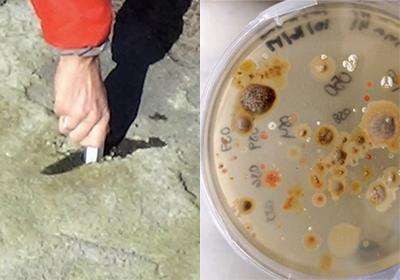
This tedious process is akin to trying to find a plumber in a phone book, says Shawn Owen, PhD, another U of U Health pharmaceutical chemist in the College of Pharmacy. “You find one and think, ‘Oh, this person seems decent,’” he says. “Then you call up and find out that they’ve gone out of business or don’t have time to do the job.”
Sorting out this muddle is a big part of 3i’s job.
“They’re really facilitators—matchmakers extraordinaire if you will,” Owen says. ”They bring people together that might not realize they have research interests in common.”
In Owen’s case, 3i connected him with U of U Health pathologists who are helping him revise a grant proposal he had crafted to study new treatments for a type of drug-resistant bacteria that causes respiratory infections. The proposal was initially rejected by NIH because no one on Owen’s team had sufficient expertise in infectious diseases.
As a result of this interaction, Owen, Winter, pathologists Matt Mulvey, PhD, and Jessica Brown, PhD, as well as chemical biologist Michael Kay, MD, PhD, have recently submitted a more comprehensive grant proposal for treating E. coli infections.
“The 3i team does a marvelous job of bringing people together,” Owen says. “I’m good at bioconjugation, I’m good at building molecules. But I don’t know diseases, and trying to figure out who is an expert on the other side of things that I can rely on is very challenging.”
In another instance, 3i matched Alana Welm, PhD, a professor of oncological sciences, with Michael Jurynec, PhD, a research professor of orthopedics, to study the effects of osteoarthritis on breast cancer metastasis to bone.
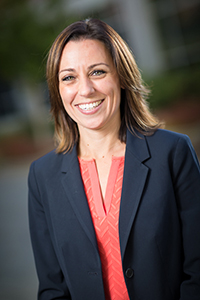
“Here you had these scientists working on two seemingly disparate topics coming together to investigate an area where their research interests meshed,” O’Connell says. “To me, that’s how the university is supposed to work."
As for Jaclyn Winter, 3i eventually helped her connect with several other U of U Health scientists, including Mulvey, Brown, Owen, Kay, and William Brazelton, PhD, professor of biological sciences.
“We all have very different skill sets, but together we’re going to tackle a huge problem that individually we could just chip away at,” Winter says.
Even when 3i isn’t actively promoting collaborations, it helps individual scientists working in the three related fields stay in touch. As the only virologist in the School of Dentistry, Melodie Weller, PhD, can feel a bit disconnected, particularly since her office is off campus. But through seminars, symposiums, and virtual online “flash talks” featuring presentations and discussions of ongoing 3i research, Weller is staying in the loop.
“3i offers me connections to the rest of the scientific community that I might not have had otherwise,” says Weller, who studies viruses that infect the saliva gland and cause oral health problems. “Being part of 3i is really essential for me.”
Taking on Infectious Disease at the Source
3i’s reach goes far beyond the shores of the Great Salt Lake to parts of the world where specific infectious diseases are a big problem. Consider Tracey Lamb, PhD, an associate professor in the Department of Pathology, for instance. Lamb works in collaboration with the Centre Pasteur du Cameroun (CPC). The national public health and research center is located in Yaoundeé, Cameroon, a Central African country plagued by malaria.
In conjunction with Lawrence Ayong, PhD, the director of the malarial research unit at CPC, she successfully obtained funding for joint research from the National Institutes of Health; now, they are working on several projects looking at different aspects of malaria in humans.
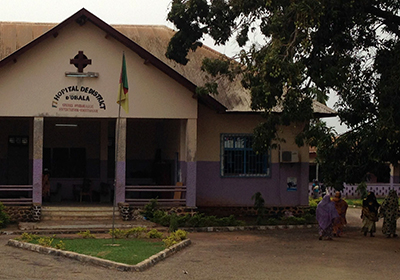
Leung has also taught immunology training courses in Cameroon and, through contacts made by Lamb, has formed a scientific collaboration with a cholera researcher in the northern part of the country.
In Ghana, a pair of U of U Health parasitic disease experts, KeKe Fairfax, PhD, and Krow Ampofo, MBCHB, plan to investigate ways to prevent and treat schistosomiasis. The disease, caused by parasite flatworms, kills up to 200,000 people annually in sub-Saharan Africa, the Middle East, Southeast Asia, and the Caribbean.
Through the Global Health affinity group, 3i has provided a monthly forum for investigators from diverse academic disciplines to join efforts in furthering research training and grant writing, says Nicole Frank, PhD, associate director of the 3i initiative and vice president of the Health Sciences Research Unit. Investigators from public health science to pediatric emergency medicine to human genetics to epidemiology are sharing ideas on best practices for international scientific collaborations and training of scientists abroad.
These and other international projects could help U of U Health better prepare for the next wave of emerging disease worldwide, Leung says.
“COVID-19 is a wake-up call,” he says. “But it won’t be the last. These emerging infections threaten global health and security. Building up a group for these emerging microbial threats is an appropriate way to leverage what we’ve learned from our experience with COVID.”
Gaining Traction
Scarcely three years ago, immunology, inflammation, and infectious disease at the U were like large continents adrift on metaphorical tectonic plates that seldom came in contact with one another.
"The I's were separated," O'Connell says. "They weren't properly dotted. They operated in silos absolutely independent and indifferent to each other. Now we've come together in amazing ways. We're really starting to have traction."